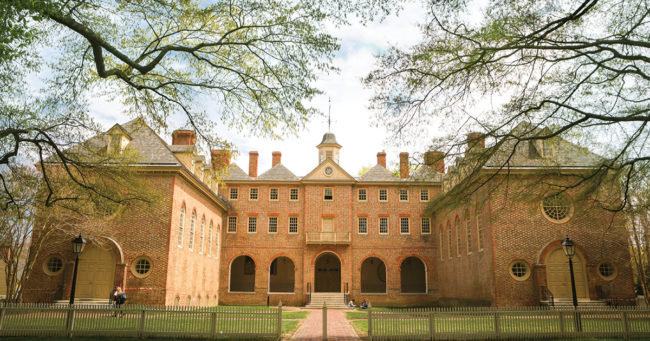Feb. 1, Clemson University student Khayla Williams led a discussion on sustained activism for the Lemon Project: A Journey of Reconcilitation’s first Porch Talk of the semester.
The talk aimed to discuss how student activists can work to sustain action in activism and maintain momentum after significant events manage to seize the attention of the public.
The Porch Talks are not new — they are one of the Lemon Project’s community outreach initiatives intended to connect the student body with the research the Project conducts. The Lemon Project’s graduate fellow Sarah Thomas explained that the origin of the series stemmed from a student comment.
“We have been having Porch Talks for several years now, spurring from when a student of color mentioned the sense of community they felt from the Donning of the Kente ceremony,” Thomas said. “These talks are aimed at creating a welcoming and comfortable space for students, especially students of color, to come and discuss topics along the lines of reconciliation and race.”
The Donning of the Kente is an event held in tandem with graduation meant to recognize and honor the accomplishments of students of color.
Khayla Williams was selected as the speaker by the Lemon Project because of her experience and passion for the subject.
“We were at a UVA slavery conference and saw her speak and were immediately like ‘Yes’,” Thomas said. “It was a panel of students and professors, and we felt that she was an inspiring speaker and someone that William and Mary students needed to see and hear.”
Williams has experience with activism at her alma mater, Clemson University, and wanted to bring that experience as a point of reference for the College community.
Williams spoke first about her own personal experiences with racism and activism, hoping to educate those in attendance through her personal history and how it relates to the College. Williams admitted that she struggled at first with what to say at the College and how best to help move the dialogue forward.
“I want to be honest, I came up with nothing,” Williams said. “The problem was that I was trying to answer it as a scholar. I am not a scholar. I am here because of the experience that I have, and with my personal story. I instead want to talk about what happened at Clemson first, and then, I would like to discuss what to do here.”
Williams elaborated on her actions at Clemson, and how those experiences helped create her own self-image.
“I struggle calling myself a student activist,” Williams said. “I don’t believe I earned that title, but in a world of labels, it seems to fit the best.”
Williams was one of the students who participated in a sit-in at the administration building at Clemson after other students defaced a banner promoting black history.
“We spent 10 days sleeping outside of the main administration building,” Williams said. “Five students were arrested for trespassing, including myself. The sit-in changed my life, my perspective, my Clemson experience. I don’t know how many times I heard the word grateful; ‘You should be grateful that African-American students are allowed in the school,’ ‘You should be grateful that you are allowed to sleep inside [during the sit in].’”
Williams then shifted the discussion to how she felt her own experience related to that of students at the College and the different ways it could improve. Williams alluded to the event last spring at the College, when students brought a list of demands related to issues felt by students of color to College President Taylor Reveley. She mentioned a need for a larger base of dissent on campus, especially among organizations that include minorities.
“We need to make sure that every organization that is involved with minorities on campus is involved,” Williams said. “It is too easy for admin to put it in a box of ‘Oh, [the Black Student Union] is mad again.’”
The students in attendance were a mixture of graduates and undergraduates, including Emma Shainwald ’20. Shainwald said her personal interests drove her to come to the event.
“I have a general interest in getting involved in activism on campus and wanted to come to this event to learn how to continuously keep up activism after major events,” Shainwald said.
Shainwald said that her own path in the activist community has been molded in great part by her experience at the College.
“In high school I was interested in activism and was excited to come to college,” Shainwald said. “At William and Mary, I wasn’t sure what to expect. I just happened to find people that connected me to activism on campus, which led to me being involved.”
The future of talks like this one is tenuous as the Lemon Project nears a turning point. Originally established in 2008, its funding was secured for 10 years. However, it is unclear whether it will still exist, in one form or another, past 2018.
“The funding for the Lemon Project from the provost ends this year, but we are hoping to move forward and to be institutionalized as a part of William and Mary, so we continue to study the history of the school and its ties to slavery,” Lemon Project graduate assistant Ravynn Stringfield said. “Student activism is a very important part of the Lemon Project. Without it, the project wouldn’t exist.”

